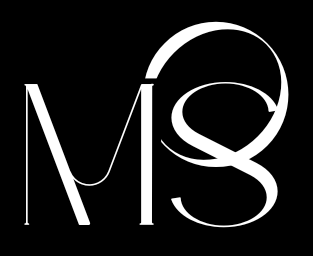In the hustle and bustle of modern life, it’s easy to overlook the importance of self-reflection and emotional healing. However, journaling offers a simple yet powerful tool for individuals seeking to deepen their self-awareness, cultivate personal growth, and heal emotional wounds. Whether you’re grappling with past traumas, navigating life transitions, or simply seeking clarity and direction, the practice of journaling can be a transformative ally on your journey. In this comprehensive guide, we’ll explore the profound benefits of journaling for self-improvement and emotional healing, along with practical strategies to incorporate this practice into your daily life.
1. The Therapeutic Power of Journaling: Journaling serves as a form of self-expression and introspection, providing a safe space to explore your thoughts, feelings, and experiences without judgment. The act of writing can be deeply cathartic, allowing you to process and release pent-up emotions, clarify your thoughts, and gain insight into your innermost desires and fears. Whether you’re grappling with anxiety, depression, or past trauma, journaling offers a therapeutic outlet for self-reflection and emotional healing.
2. Cultivating Self-Awareness: Self-awareness is the foundation of personal growth and transformation. Journaling enables you to deepen your understanding of yourself by shining a light on your thoughts, emotions, and behavioral patterns. Through regular journaling, you can identify recurring themes, triggers, and underlying beliefs that may be holding you back or contributing to emotional distress. By cultivating self-awareness, you gain the power to make conscious choices aligned with your values and aspirations.
3. Processing Emotions and Trauma: Journaling provides a safe and supportive space to process complex emotions and heal from past traumas. Whether you’re grieving the loss of a loved one, navigating a difficult breakup, or coping with the aftermath of a traumatic experience, writing can be a powerful tool for emotional catharsis and resilience. By expressing your feelings on paper, you can release pent-up emotions, gain perspective on your experiences, and begin the healing process.
4. Setting Intentions and Goals: Journaling can also be a valuable tool for setting intentions, clarifying goals, and mapping out your aspirations for the future. Take time to reflect on what you truly desire in life – whether it’s personal growth, career advancement, or deeper connections with others. Write down your goals in detail, along with actionable steps you can take to manifest them. By articulating your intentions and goals in writing, you harness the power of intentionality and focus your energy towards creating the life you desire.
5. Enhancing Problem-Solving Skills: Journaling can sharpen your problem-solving skills by providing a structured framework to analyze challenges and explore potential solutions. When faced with a difficult decision or dilemma, write down the problem you’re facing, along with any relevant thoughts, feelings, and possible courses of action. Use your journal to brainstorm creative solutions, weigh the pros and cons of each option, and reflect on how your values and priorities align with different choices. By approaching problems systematically and thoughtfully, you’ll enhance your decision-making skills and build resilience in the face of adversity.
6. Promoting Gratitude and Positive Thinking: Gratitude journaling is a specific form of journaling that focuses on cultivating appreciation for the blessings in your life. Each day, take a few moments to write down three things you’re grateful for, along with a brief explanation of why. By regularly practicing gratitude, you shift your focus from what’s lacking to what’s abundant in your life, fostering a positive outlook and enhancing your overall sense of well-being. Gratitude journaling can also serve as a powerful antidote to negative thinking patterns and rumination, promoting resilience and emotional balance.
7. Establishing a Consistent Journaling Practice: To reap the full benefits of journaling, it’s essential to establish a consistent practice that fits seamlessly into your daily routine. Set aside dedicated time each day – whether it’s in the morning, evening, or during your lunch break – to sit down with your journal and reflect on your thoughts and experiences. Find a quiet, comfortable space where you can write without distractions, and choose a journaling format that resonates with you – whether it’s free writing, guided prompts, or structured exercises. Experiment with different styles and approaches until you find what works best for you, and remember that there’s no right or wrong way to journal – the most important thing is to show up and commit to the practice.
Conclusion: Journaling is a potent tool for self-improvement and emotional healing, offering a safe and supportive space to explore your inner world, clarify your thoughts, and cultivate personal growth. Whether you’re grappling with past traumas, navigating life transitions, or simply seeking clarity and direction, the practice of journaling can be a transformative ally on your journey towards greater self-awareness and fulfillment. By incorporating journaling into your daily routine and embracing it as a sacred practice of self-discovery and reflection, you’ll unlock profound insights, heal emotional wounds, and unleash your full potential.





 No products in the cart.
No products in the cart.